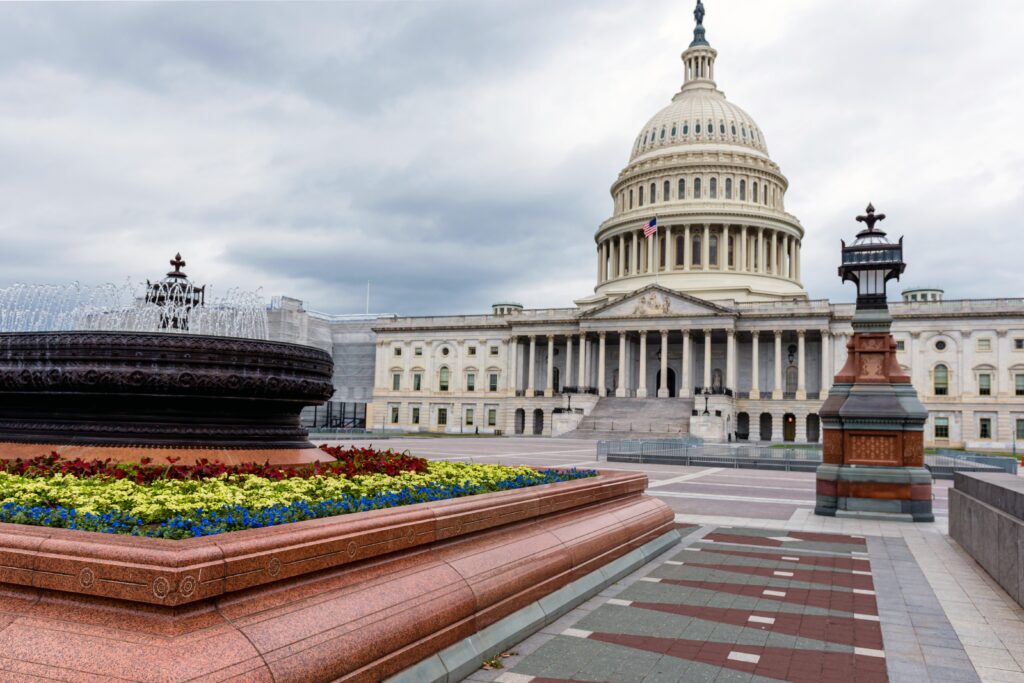
Latest News: Development of a National Provider Directory
Back in June, I was on the Monitor Mondays broadcast discussing the initial momentum within the Trump Administration for a single, national provider directory. Now,

High Court ruling raises questions concerning ALJ appointments.
A sneaky and under-publicized matter, which will affect every one of you reading this, slid into common law last year with a very recent case, dated Jan. 9, 2020, upholding and expanding the findings of a 2018 case, Lucia v. SEC, 138 S. Ct. 2044 (U.S. 2018). In Lucia, the Supreme Court upheld the plain language of the U.S. Constitution’s Appointments Clause.
The Appointments Clause prescribes the exclusive means of appointing “officers.” Only the President, a court of law, or a head of department can do so. See Art. II, § 2, cl. 2.
In Lucia, the sole issue was whether an administrative law judge (ALJ) can be appointed by someone other than the President or a department head under Article II, §2, cl. 2 of the U.S. Constitution, or whether ALJs simply federal employees. The Lucia court held that ALJs must be appointed by the President or the department head; this is a non-delegable duty. The most recent case, Sara White Dove-Ridgeway v. Nancy Berrryhill, 2020 WL 109034, (D.Ct.DE, Jan. 9, 2020), upheld and expanded Lucia.
ALJs are appointed. In many states, ALJs are direct employees of a single state agency. In other words, in many states, about half, the payroll check that an ALJ receives bears the emblem of the department of health for that state. I have litigated in administrative courts in approximately 33 states, and have seen my share of surprises. In one case, many years ago, LinkedIn informed me that my appointed ALJ was actually a professional photographer by trade.
Lucia, however, determined that ALJs at the Securities and Exchange Commission (SEC) were “officers of the United States,” subject to the Appointment Clause of the Constitution, which requires officers to be appointed by the president, the heads of departments, or the courts. The court’s decision raised concern at the U.S. Department of Health and Human Services (HHS) because its ALJs had not been appointed by the secretary, but rather by lower agency officials.
The court also held that relief should be granted to “one who makes a timely challenge to the constitutional validity of the appointment of an officer who adjudicates his case.” Whether that relief is monetary, in the form of attorneys’ fees reimbursed or out-of-pocket costs, it is unclear.
In July 2018, President Trump’s Executive Order 13843 excepted ALJs from the competitive service, so agency heads, like HHS Secretary Alex Azar, could directly select the best candidates through a process that would ensure the merit-based appointment of individuals with the specific experience and expertise needed by the selecting agencies.
The executive order also accepted all previously appointed ALJs. So there became a pre-July 16, 2018, challenge and a post-July 16, 2018, based on Trump’s Executive Order. Post-July 16, 2018, appointees had to be appointed by the President or department head. But the argument could be made that ALJs appointed pre-July 16, 2018, were grandfathered into the more lax standards. In Dove-Ridgway, Social Security benefits were at issue. On July 5, 2017, ALJ Jack S. Pena found a plaintiff not disabled. On Jan. 7, 2019, the plaintiff filed an appeal of the ALJ’s decision, seeking judicial review from the district court. In what seems to be the fastest decision ever to emerge from a court of law, two days later, a ruling was rendered. The District Court found that even though at the time of the administrative decision, Lucia and Trump’s Executive Order had not been issued, the court still held that the ALJ needed to have been appointed constitutionally. It ordered a remand for a rehearing before a different, constitutionally appointed ALJ, despite the fact that Trump had accepted all previously appointed ALJs.
In this firsthand, post-Jan. 9, 2020, era, we have an additional defense against Medicare or Medicaid audits or alleged overpayments in our arsenal: was the ALJ appointed properly, per the U.S. Constitution?
Programming Note: Listen to Knicole Emanuel’s live reports on Monitor Monday, 10-10:30 a.m. EST.


Back in June, I was on the Monitor Mondays broadcast discussing the initial momentum within the Trump Administration for a single, national provider directory. Now,

It’s no secret to any of us that there has been quite a bit of recent disagreement between the opposing sides of the political aisle
Please log in to your account to comment on this article.

Denials continue to delay reimbursement, increase administrative burden, and threaten financial stability across healthcare organizations. This essential webcast tackles the root causes—rising payer scrutiny, fragmented workflows, inconsistent documentation, and underused analytics—and offers proven, data-driven strategies to prevent and overturn denials. Attendees will gain practical tools to strengthen documentation and coding accuracy, engage clinicians effectively, and leverage predictive analytics and AI to identify risks before they impact revenue. Through real-world case examples and actionable guidance, this session empowers coding, CDI, and revenue cycle professionals to shift from reactive appeals to proactive denial prevention and revenue protection.

Sepsis remains one of the most frequently denied and contested diagnoses, creating costly revenue loss and compliance risks. In this webcast, Angela Comfort, DBA, MBA, RHIA, CDIP, CCS, CCS-P, provides practical, real-world strategies to align documentation with coding guidelines, reconcile Sepsis-2 and Sepsis-3 definitions, and apply compliant queries. You’ll learn how to identify and address documentation gaps, strengthen provider engagement, and defend diagnoses against payer scrutiny—equipping you to protect reimbursement, improve SOI/ROM capture, and reduce audit vulnerability in this high-risk area.

Only ICD10monitor delivers what you need: updates on must-know changes associated with the FY26 IPPS, including new ICD-10-CM/PCS codes, CCs/MCCs, and MS-DRGs, plus insights, analysis and answers to your questions from two of the country’s most respected subject matter experts.

This third session in our 2026 IPPS Masterclass will feature a review of FY26 changes to the MS-DRG methodology and new technology add-on payments (NTAPs), presented by nationally recognized ICD-10 coding expert Christine Geiger, MA, RHIA, CCS, CRC, with bonus insights and analysis from Dr. James Kennedy.

Federal auditors are zeroing in on Inpatient Rehabilitation Facility (IRF) and hospital rehab unit services, with OIG and CERT audits leading to millions in penalties—often due to documentation and administrative errors, not quality of care. Join compliance expert Michael Calahan, PA, MBA, to learn the five clinical “pillars” of IRF-PPS admissions, key documentation requirements, and real-life case lessons to help protect your revenue.

During this essential RACmonitor webcast Michael Calahan, PA, MBA Certified Compliance Officer, will clarify the rules, dispel common misconceptions, and equip you with practical strategies to code, document, and bill high-risk split/shared, incident-to & critical care E/M services with confidence. Don’t let audit risks or revenue losses catch your organization off guard — learn exactly what federal auditors are looking for and how to ensure your documentation and reporting stand up to scrutiny.

Learn how to navigate the proposed elimination of the Inpatient-Only list. Gain strategies to assess admission status, avoid denials, protect compliance, and address impacts across Medicare and non-Medicare payors. Essential insights for hospitals.

RACmonitor is proud to welcome back Dr. Ronald Hirsch, one of his most requested webcasts. In this highly anticipated session, Dr. Hirsch will break down the complex Two Midnight Rule Medicare regulations, translating them into clear, actionable guidance. He’ll walk you through the basics of the rule, offer expert interpretation, and apply the rule to real-world clinical scenarios—so you leave with greater clarity, confidence, and the tools to ensure compliance.
Happy National Doctor’s Day! Learn how to get a complimentary webcast on ‘Decoding Social Admissions’ as a token of our heartfelt appreciation! Click here to learn more →
CYBER WEEK IS HERE! Don’t miss your chance to get 20% off now until Dec. 2 with code CYBER24